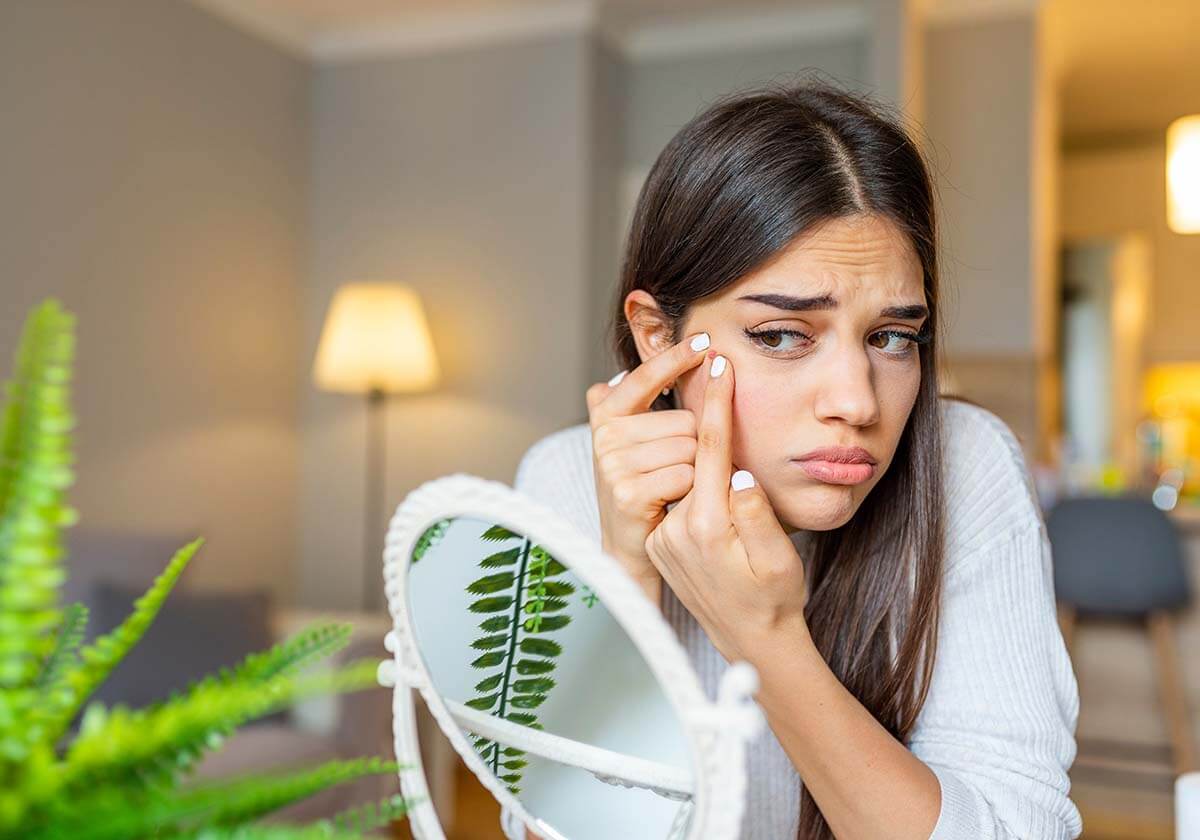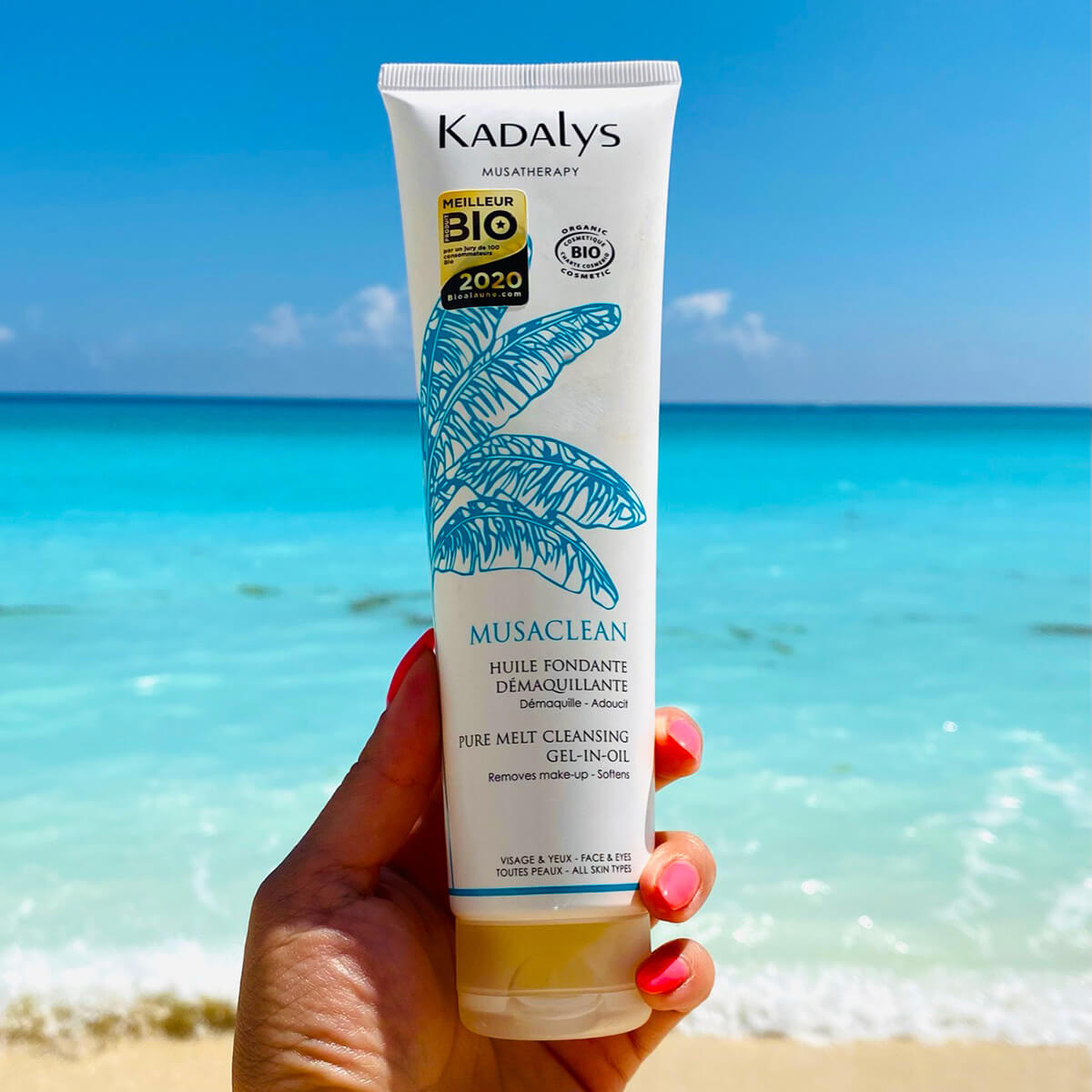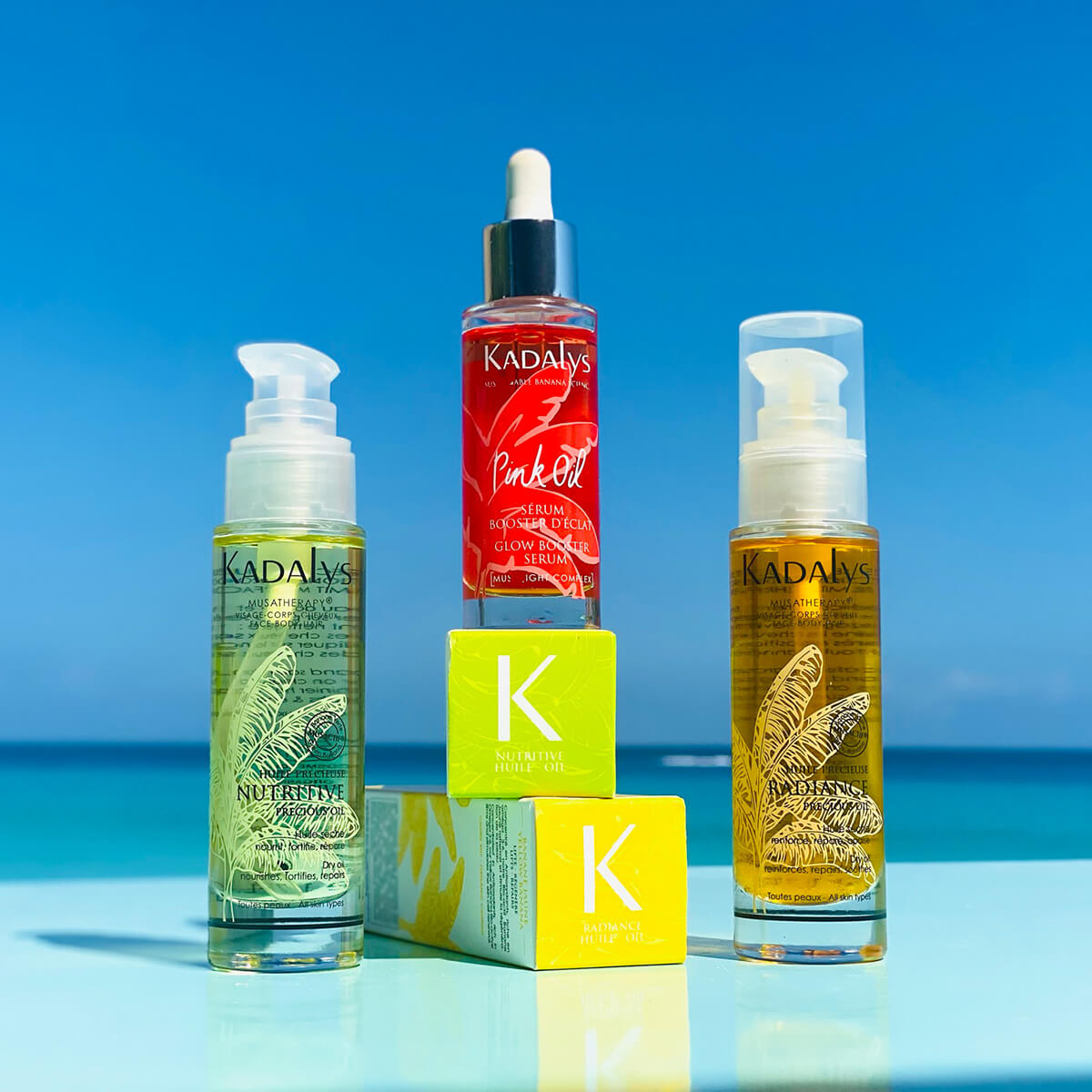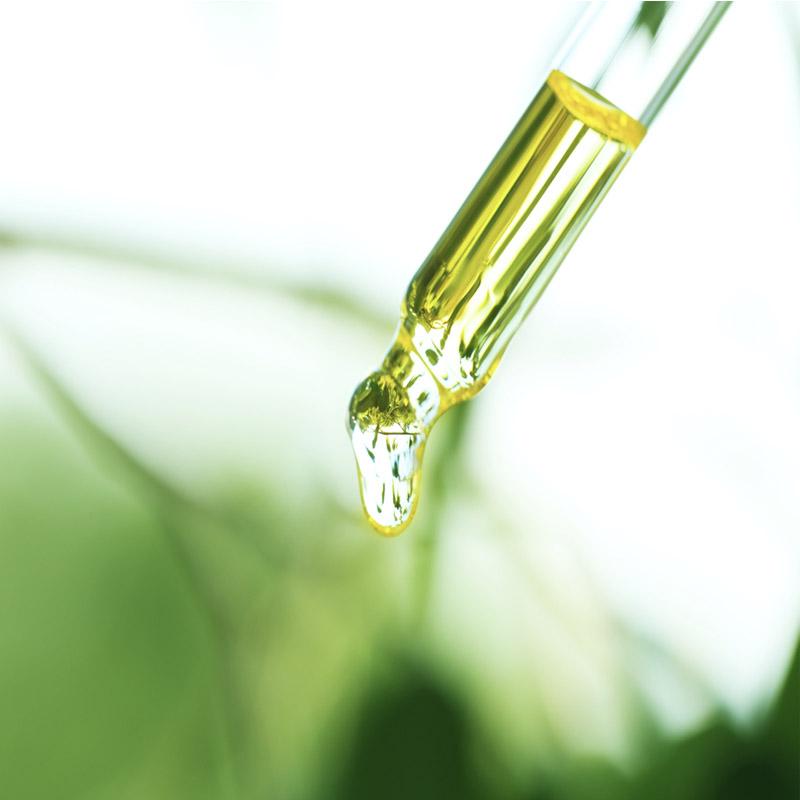
How To Get Clear Skin (& Maintain It)
Look anywhere on Instagram, and you'll see a conversation about #skingoals, which usually translates to a desire for glowing skin. While we don't need to have a perfect complexion, many of us are looking for tips on how to get clear skin and keeping it looking its best.
The most commonly cited barrier to achieving our clear skin goals? Acne breakouts.
Everyone experiences breakouts
You are not alone if you suffer from acne, blemishes, or other skin problems—millions worldwide struggle with clear skin issues daily. Breakouts are a common condition that affects people of all ages and all skin types.
A recent survey from the Global Cosmetic Industry found that "nearly 100% of consumers say they have experienced acne at some point in their lives." Furthermore, nearly 8 in 10 also report regularly experiencing acne breakouts - even those with dry skin.
These findings also showed that breakouts were a more significant concern than dark spots, enlarged pores, wrinkles, and even sagging skin. In fact, acne was the number one concern for all consumers until after age 60. So the bad news is that we are all struggling to achieve the glowing skin we want.
The good news is that there are many home remedies for clear and healthy skin.
Of course, the first step to breaking up with breakouts is understanding what causes them in the first place.
What causes breakouts?
Acne, aka acne vulgaris, is a complicated and misunderstood skin condition. There are many myths and misconceptions about what causes acne.
For example, diet (especially chocolate) often gets blamed for causing acne, but the reality is that acne breakouts are caused by clogged pores (the openings of hair follicles). The blocked follicles cause breakouts including blemishes, pimples, whiteheads, blackheads, and cysts.
When dirt, oil, and dead skin cells build up on the skin's surface, they can block pores and lead to breakouts. When that happens, it creates the perfect environment for bacteria to grow, which leads to inflammation and breakouts.
Hormones also play a role in the development of acne. Hormonal changes can cause an increase in oil and sebum production, which can lead to clogged pores and breakouts.
Some medications, such as steroids or certain antibiotics, can trigger or worsen acne. Talk to your doctor about alternative treatments if you take any of these medications and experience breakouts.
Stress can also trigger a breakout. When you are under pressure, your body produces hormones that can lead to the development of a new breakout or worsen the acne you already have.
While acne is caused by too much sebum production, it is essential to note that excess oil buildup doesn't happen only with oily or combination skin. Acne can form on any skin type. In other words, anyone can have acne-prone skin -- even someone with dry skin.
Factors contributing to acne breakouts
Additionally, certain situations and habits (like forgetting to wash your face) can contribute to oil production and bacteria growth on the skin. When these factors come together, they can cause the inflammation and redness we associate with acne.
Some of the additional factors that can contribute to breakouts include:
Diet
While we can't blame chocolate for our acne, there is some evidence to suggest that diet plays a role in how clear our skin is. The relationship between diet and acne is complicated; different foods seem to influence hormones such as insulin, insulin-like growth factor 1, and androgens, which in turn can contribute to the development of acne. Dairy products and sugar can affect these hormones, which may affect acne development.
Cleansing habits
Not cleansing your face regularly can allow bacteria to grow. On the flip side, washing your face too often or using a harsh cleanser can strip the skin of natural oils. Your skin then responds by producing more oil, leading to more clogged pores and worsening acne. It can become a vicious cycle.
Weakened skin barrierThe moisture barrier is the skin's outermost layer that helps protect against environmental aggressors, regulate moisture levels, and prevent irritants from penetrating the skin. A weakened moisture barrier can allow moisture to escape and bacteria to get in, leading to inflammation and the development of acne.
When the barrier is compromised, it can lead to dryness, redness, and inflammation - all of which can contribute to the development of acne.
Aggressive cleansing, harsh skin care products, and hot water are a few of the things that can cause barrier damage. (Learn more about keeping your moisture barrier healthy.)
Bad skincare habitsWearing heavy makeup, touching your face often, using dirty makeup brushes, and picking at pimples can all contribute to the development of acne.
Excessive sweatingSweat doesn't cause acne, but the bacteria on your skin after a workout can lead to breakouts because it creates a moist and occlusive environment. This environment creates a breeding ground for bacteria, oil, and dead skin cells, which can block your pores and cause acne.
So after a workout, hit the showers instead of checking your phone. Your skin will thank you.
Sensitivity to skin care productsIf you have sensitive skin, certain ingredients in cosmetics and skin care products can cause irritation, redness, and breakouts.
Acne's emotional toll
In addition to being a physical condition, acne can cause psychological stress and affect your emotional wellbeing.
Acne can cause feelings of low self-esteem, anxiety, and depression. It can also lead to social isolation and problems in relationships.
There are many effective treatments for acne, so see a dermatologist if you struggle with the condition. With the proper treatment, you can improve your complexion and your quality of life.
How to treat existing breakouts?

You can do several things at home to help treat breakouts and promote clear skin. However, it's important to note that everyone is different, so what works for one person may not work for another.
In addition, it's essential to be gentle with your skin and not overdo it when applying home remedies for clear skin.
You'll also need to practice patience before ditching one treatment for another. It takes a few weeks for an acne treatment to start working, so be patient. If you don't see any results by then, then you can try try a different solution or product. It can take 3 to 4 months (sometimes longer) for your skin to clear completely.
Here are ten dermatologist-approved tips and options to fight acne and help skin clear up:
1. Keep skin clean
Gently cleanse the area around the blemish with a mild facial cleanser and warm water. Avoid scrubbing or using harsh chemicals, which can irritate the skin and worsen acne.
2. Apply a warm compress
Apply a warm compress to the affected area. Pores will open up when exposed to heat, allowing the dirt and excess oil on the skin's surface to be drawn out.
3. Apply a cool compress
To reduce redness, use a cold compress. You can wrap a clean cloth over ice or put a wet washcloth in the fridge and then apply it to the blemish.
The coolness will help shrink the blood vessels, help soothe redness, and reduce inflammation for those painful and swollen blemishes.
4. Use acne treatments
Apply a thin layer of topical medication to the blemish or breakout area.
Salicylic acid is a type of beta hydroxy acid that helps to unclog pores, remove dead cells, and reduce inflammation. Benzoyl peroxide is another standard acne treatment that works by killing bacteria on the skin's surface.
The two ingredients are available over the counter, but this doesn't mean they're safe for everyone. Consult your doctor if you have any underlying skin conditions.
You should also speak to your doctor if you have health conditions like diabetes, kidney disease, or liver disease before using topical medications.
5. Unclog pores and remove dead skin cells
Gently exfoliate the skin with a chemical exfoliator around the blemish or pimple to help remove any dead cells or excess oil clogging your pores. Don't use a physical scrub as it can spread acne bacteria to other parts of your face.
Instead, look for chemical exfoliants like lactic acid or glycolic acid. Our Exfoliating Peel is a good option for those who want effective yet gentle exfoliation for a troubled complexion.
6. Use a toner
Consider adding a clarifying toner to your routine. Toners can help remove any remaining dirt and oil on the skin's surface. The Kadalys Toner contains lactic acid from fruits and vegetables, which helps unclog pores so blemishes can heal.
Toners often also provide skin brightening benefits so you can help your complexion look more radiant as you treat your breakouts.
Not sure if a toner is for you? Learn more about "The Benefits of a Facial Toner."
7. Keep your moisture barrier healthy
When the moisture barrier is healthy, it can better protect against environmental stressors and maintain a clear complexion. When this barrier is damaged, it can lead to dry skin, inflammation, and other skin problems.
Apply a light, non-greasy moisturizer to keep your skin barrier hydrated and healthy. For optimal skin hydration levels, look for a moisturizer that contains hyaluronic acid or glycerin, which can help to attract and retain moisture. This will help you maintain healthy skin that glows.
8. Choose pore-friendly skincare and makeup products
Choose makeup and skincare products that are non-comedogenic, meaning they won't clog your pores. This will allow you to safely cover up your acne so you can feel more confident.
Pro-tip: Don't forget to wash makeup brushes regularly to prevent bacteria from building up. They can be an unexpected source of breakouts, especially for oily skin.
9. Avoid touching your face
Don't pick or squeeze pimples because this can spread infection, make acne worse, and cause permanent scarring.
10. Consult a professional
See a dermatologist if you have severe acne or if your breakouts do not improve after several days of home treatment. They can prescribe topical medications, such as a retinoid, to help clear up your complexion.
How to get & maintain clear skin

While there is no surefire way to prevent breakouts, you can do a few things to reduce your chances of developing them.
To get clearer skin, you must take a holistic approach that includes skin care and lifestyle changes.
Here are eleven more of our most favorite dermatologist-approved tips for maintaining the bright, clear skin after yoru breakouts clear. They're also a great list of skin care habits to build into your beauty rituals.
1. Wash your face with a mild facial cleanser
Cleanse your skin twice daily with a mild cleanser or gentle face wash, such as the Kadalys Cleansing Gel, which is safe for even sensitive skin types.
Avoid harsh soaps or scrubs, which can irritate the skin and worsen breakouts. Instead, opt for a gentle face wash that will cleanse the skin without stripping away its natural oils.
Build good skin cleansing habits by washing your face each morning and night. Don't go to bed with make-up on or it will clog your pores and lead to more breakouts.
2. Exfoliate once or twice a week
Dead skin cells can build up on the skin's surface and clog pores, leading to breakouts. To prevent this, exfoliate regularly with a mild scrub or exfoliating peel such as our Exfoliating Peel.
(Want more info on how to exfoliate correctly? Read "How To Exfoliate Your Face By Skin Type.")
3. Don't skip moisturizing or sunscreen
Moisturizing helps to balance the oil production and prevent your pores from becoming clogged. Look for a light moisturizer that won't clog your pores even if you have oily skin.
4. Keep your hands off your face
Avoid touching your face unnecessarily, especially if your hands are dirty or you have just finished working out. Touching your face can cause more breakouts by spreading bacteria and oil from your hands onto your skin.
Wash your hands before cleansing your face, and apply our toner and acne treatment products with a cotton pad to ensure you are not spreading germs or bacteria.
And while it's tempting to pick at or pop pimples, resist the urge! It can lead to acne scarring.
5. Adopt a healthy diet and drink plenty of water
Drink plenty of water and eat a healthy diet to help keep your skin glowing, hydrated, and healthy. A diet rich in fruits and vegetables promotes clear skin and enables you to fight free radicals, which leads to premature skin aging.
6. Reduce stress levels
Hormones often trigger breakouts, and stress can cause an increase in hormone production. Taking steps to manage stress can help to prevent breakouts.
Some simple stress-reducing techniques include exercise, meditation, journaling, taking a bath, or taking a walk outdoors. Beyond the skin benefits, these activities can help improve your emotional and mental health.
7. Get enough sleep
When you don't get enough rest, your body produces more stress hormones, making your skin more sensitive and triggering breakouts. In addition, sleep deprivation can cause your body to produce less collagen, a protein that helps to keep your complexion looking smooth and elastic.
Aim to get seven to eight hours of sleep per night. While eight hours might not always be possible, even an extra hour or two of shut-eye can make a big difference in the health of your skin.
8. Exercise
Exercise helps to flush out the toxins in your body that can clog up your pores and lead to breakouts. In addition, exercise increases blood flow and delivers oxygen and other nutrients to your skin cells, which helps to keep your complexion looking healthy and radiant.
So, if you're looking for a way to prevent breakouts, hit the gym (or go for a run) and let your sweat do its thing!
9. Wear sunscreen
Sunscreen protects your skin from harmful UV rays and prevents future breakouts.
Be sure to use a broad-spectrum sunscreen with an SPF of 30 or higher daily, even when you don't plan on spending time in the sun.
10. Apply an acne treatment
Use a topical treatment, such as benzoyl peroxide or salicylic acid, to help keep your pores clear of oil and bacteria. Over-the-counter acne treatments can be effective in treating mild to moderate breakouts.
Look for products that contain benzoyl peroxide, salicylic acid, or retinoids, which are all proven acne fighters.
11. Seek the help of a dermatologist
If you've tried over-the-counter treatments, such as salicylic acid, and home remedies without success, it may be time to see a dermatologist for prescription medication.
Various oral and topical medications can effectively treat even the most stubborn breakouts. Consult with a dermatologist if you are struggling with frequent or severe breakouts.
Moisturizing is important, even for oily skin or acne prone skin.
Many people think they don't need to moisturize if they have oily skin. However, this is a misconception. Moisturizing is essential in any skincare routine, even for those with oily skin. Moisturizers help to replenish the skin's natural moisture barrier.
The moisture barrier is essential for keeping skin hydrated and protecting it from environmental aggressors. Without a healthy moisture barrier, the skin is more susceptible to dryness, irritation, and inflammation.
Additionally, a good moisturizer can help to control excess oil production. Look for a light moisturizer that won't clog pores or cause breakouts.
The Kadalys Nutritive Oil with dry oils of green banana, green tea and jojoba can help regulate sebum production and reduce the look of blackheads and pimples because it calms and purifies the skin. Even oily skin can use it.
Remember, moisturizing is vital to achieving a clear, brighter complexion - even if you have oily skin. A moisturizer can help every skin type achieve clear, healthy skin - especially when combined with other acne-fighting habits.
Consistency is key
One of the most important things you can do is to develop a consistent skincare routine and stick to it. That means cleansing, exfoliating, and moisturizing regularly.
Additionally, it is essential to wear sunscreen every day to protect the skin from damage caused by UV rays. It might seem like a lot of work, but once you get into the habit, it will only take a few minutes out of your day. And, when you look in the mirror and see clear, brighter skin, you'll know it's worth it.
The clear conclusion:
If you're struggling with breakouts, you're not alone. Acne is a common condition that affects people of all ages and skin types (even those with dry skin!).
Fortunately, there are several things you can do to get clear skin and improve your glow.
In addition to following a consistent skincare routine, use non-comedogenic makeup and hair products, washing your face daily, and avoid touching your face throughout the day.
You should also incorporate lifestyle changes such as eating well, exercising, and reducing stress so that you're addressing your skin holistically.
If you stick to these simple tips, you should see a noticeable improvement in your complexion within a few weeks. Your clear skin will also be healthier, happier, and more radiant skin.





